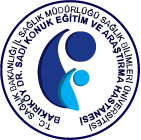ABSTRACT
Objective:
Abortus imminens is a critical complication observed 10-20% of all pregnant women. Subchorionic hematoma is an important parameter in the diagnosis of abortus imminens; however, it is yet to be known the exact cause of subchorionic hematoma. A relation is thought to exist between anti-cardiolipin antibodies and subchorionic hematoma. So, we hereby in this study have compared the positiveness of the anti-cardiolipin antibodies in women with and without subchorionic hematoma. We have as well examined whether there is a relation between pregnancy outcomes and anti-cardiolipin positiveness.
Methods:
The study has been planned as a case-controlled one, in which 41 women with abortus imminens and subchorionic hematoma; and 29 women with abortus imminens and without subchorionic hematoma were included and where the demographic data of those women were defined. The level of anti-cardiolipin antibodies (IgG, IgM) was measured by ELISA method.
Results:
No substantive difference has been detected between women with abortus imminens having subchorionic hematoma; and women with abortus imminens not having subchorionic hematoma in terms of age, parity and gravity. Compared to the women without subchorionic hematoma, the anti-cardiolipin antibody positiveness has been observed to be higher in the women with subchorionic hematoma in statistical terms. Furthermore, unfavorable pregnancy outcomes have been seen at a higher rate in pregnant women with positive anti-cardiolipin antibody compared to the nonpositive ones in the study.
Conclusion:
The circulating anti-cardiolipin antibody levels were found to be elevated in women with abortus imminens having subchorionic hematoma compared to those women with abortus imminens not having subchorionic hematoma and there was a relationship between anti-cardiolipin antibody and unfavorable pregnancy outcome.
Keywords:
Abortus imminens, subchorionic hematoma, anti-cardiolipin antibody, pregnancy outcomes
References
1Ford HB, Schust DJ. Recurrent pregnancy loss: etiology, diagnosis, and therapy. Rev Obstet Gynecol 2009;2:76-83.
2Liu Y, Liu Y, Zhang S, Chen H, Liu M, Zhang J. Etiology of spontaneous abortion before and after the demonstration of embryonic cardiac activity in women with recurrent spontaneous abortion. Int J Gynaecol Obstet 2015;129:128-32.
3Lathi RB, Gray Hazard FK, Heerema-McKenney A, Taylor J, Chueh JT. First trimester miscarriage evaluation. Semin Reprod Med 2011;29:463-9.
4Heller HT, Asch EA, Durfee SM, Goldenson RP, Peters HE, Ginsburg ES, et al. Subchorionic Hematoma: Correlation of Grading Techniques With First-Trimester Pregnancy Outcome. J Ultrasound Med 2018;37:1725-32.
5Zhou J, Wu M, Wang B, Hou X, Wang J, Chen H, et al. The effect of first trimester subchorionic hematoma on pregnancy outcomes in patients underwent IVF/ICSI treatment. J Matern Fetal Neonatal Med 2017;30:406-10.
6Amengual O, Atsumi T. Antiphospholipid syndrome: “the best prophet of the future”. Mod Rheumatol 2018:1-24.
7Gris JC, Bouvier S, Nouvellon E, Lissalde-Lavigne G, Mercier E, Balducchi JP, et al. Antiphospholid antibodies and the risk of pregnancy complications. Thromb Res 2017;151 Suppl 1:S34-S7.
8Heller HT, Asch EA, Durfee SM, Goldenson RP, Peters HE, Ginsburg ES, et al. Subchorionic Hematoma: Correlation of Grading Techniques With First-Trimester Pregnancy Outcome. J Ultrasound Med 2018;37:1725-32.
9Xiang L, Wei Z, Cao Y. Symptoms of an intrauterine hematoma associated with pregnancy complications: a systematic review. PLoS One 2014;9:e111676.
10Zhonghua Yi Xue Za Zhi. [Effects of subchorionic hematoma on pregnancy outcome: a meta analysis]. 2016;96:1383-5.
11Baxi L, Pearlstone M. Subchorionic hematoma and the presence of autoantibodies.Am J Obstet Gynecol 1991;165:1423-4.
12Petri M. Epidemiology of the antiphospholipid antibody syndrome. J. Autoimmun 2000.15:145-51.
13Levine JS, Branch DW, Rauch J. The antiphospholipid syndrome. N Engl J Med 2002;346:752-63.
14Harris E, Spinnato J. Should anticardiolipin test be performed in otherwise healty pregnant women? Am J Obstet Gynecol 1991;165:1272-7.
15Saccone G, Berghella V, Maruotti GM, Ghi T, Rizzo G, Simonazzi G, et al. Antiphospholipid antibody profile based obstetric outcomes of primary antiphospholipid syndrome: the PREGNANTS study. Am J Obstet Gynecol 2017;216:525.e1-525.e12.
16Latino JO, Udry S, Aranda FM, Perés Wingeyer SDA, Fernández Romero DS, de Larrañaga GF. Pregnancy failure in patients with obstetric antiphospholipid syndrome with conventional treatment: the influence of a triple positive antibody profile. Lupus 2017;26:983-8.
17Gris JC, Bouvier S, Nouvellon E, Lissalde-Lavigne G, Mercier E, Balducchi JP, et al. Antiphospholid antibodies and the risk of pregnancy complications. Thromb Res 2017;151 Suppl 1:S34-S7.
18.Lockwood CJ, Rand JH. The immunobiology and obstetrical consecuenses of antiphospholipid antibodies. Obstet Gynecol Surv 1994;49:432-41.
19Branch DW, Dudley DJ, Mitchell MD, Creighton KA, Abbott TM, Hammond EH, et al. Immunoglobulin G fractions from patients with antiphospholipid antibodies cause fetal death in BALB/c mice :A model for autoimmune loss. Am J Obstet Gynecol 1990;163:210-6.
20Schreiber K, Sciascia S, de Groot PG, Devreese K, Jacobsen S, Ruiz-Irastorza G, et al. Antiphospholipid syndrome. Nat Rev Dis Primers 2018;4:17103.
21Shi H, Zheng H, Yin YF, Hu QY, Teng JL, Sun Y, et al. Antiphosphatidylserine/prothrombin antibodies (aPS/PT) as potential diagnostic markers and risk predictors of venous thrombosis and obstetric complications in antiphospholipid syndrome. Clin Chem Lab Med 2018;56:614-24.
22Chong X.L.,Murphy A. Antinuclear antibodies in sera of patients with reccurrent pregnancy westage. Am J Obstet Gynecol 1990;163:1493.
23Santos TDS, Ieque AL, de Carvalho HC, Sell AM, Lonardoni MVC, Demarchi IG, et al. Antiphospholipid syndrome and recurrent miscarriage: A systematic review and meta-analysis. J Reprod Immunol 2017;123:78-87.
24Scott JR, Rote NS, Branch DW. Immunologic aspect of recurrent abortion and fetal death. Obstet. Gynecol 1987;70:645-56.
25Haddow JE, Rote NS, Dostal-Johnson D, Palomaki GE, Pulkkinen AJ, Knight GJ. Lack of an association between late fetal death and antiphospholipid antibodies measuruments in the secon trimester. Obstet Gynecol 1991;165:1308-12.
26Infante-Rivard C, David M, Gauthier R, Rivard GE. Lupus anticoagulant, anticardiolipin antibodies and fetal loss. N Engl J Med 1991;325:1063-6.
27Lockshin MD, Sammaritano LR. Antiphospholipid antibodies and fetal loss (letters). N Engl J Med 1992;326:951-2; author reply 953-4.



